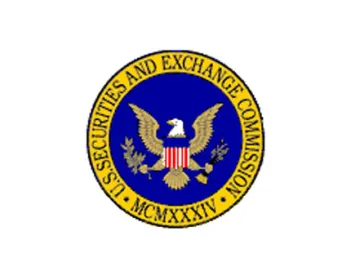Even before President Trump’s nomination of Jay Clayton as the next Chairman of the Securities and Exchange Commission (“SEC” or “Commission”), signs have been appearing that changes are afoot within the Division of Enforcement (“Enforcement Division”). The power of Enforcement Division attorneys in the field to issue subpoenas and open new investigations was recently scaled back, and now will require personal sign-off by the Director of Enforcement in Washington, D.C. With new incoming leadership at the top, and looming legislative proposals by the Republican-majority Congress that promise to take a hard look at the Dodd-Frank Wall Street Reform and Consumer Protection Act (“Dodd-Frank”), the Enforcement Division under the Trump Administration is likely to be more centralized and potentially will focus on a different set of priorities and a different approach than the SEC has taken in recent years.
I. Reduced Investigative Powers by Enforcement Attorneys
In February, in a move that was not publicly announced by the SEC, Acting Chair Michael Piwowar revoked the ability of certain Enforcement Division attorneys to issue subpoenas and formal orders of investigation.1 Historically, these actions required approval by the five-member Commission. However, in 2010, following the SEC’s failure to detect and prevent several high-profile cases, including the Ponzi scheme perpetrated by Bernie Madoff, then-Chair Mary Schapiro delegated these powers to the Director of Enforcement, who in turn delegated them to approximately 20 Associate Directors within the Enforcement Division.2 The move was an effort to allow those who are “on the scene and closest to the facts” more autonomy and the ability to take quick and efficient action.3
Under the new policy, subpoenas and orders of investigations must again be approved by the Director of Enforcement (but not the entire Commission). It remains to be seen whether Acting Chair Piwowar’s action will result in fewer subpoenas issued or investigations conducted. Regardless, it indicates that after years of allowing Enforcement Division attorneys wide latitude to open and pursue cases, the Commission is reverting to a more centralized decision-making model. This will make it easier for the (currently unnamed) incoming Director of Enforcement and the Commission to focus on their chosen enforcement priorities and more closely scrutinize potential investigations before they even begin.
II. New Personalities and Priorities
With three open seats to fill by appointment (including one to be filled by incoming Chair Clayton), expect the SEC to approach enforcement differently under the Trump Administration.4 Under the leadership of recently-resigned Chair Mary Jo White, a former federal prosecutor, the SEC acted as a “tough cop” with a “broken windows” enforcement policy that focused on several key priorities—including financial reporting5 and the Foreign Corrupt Practices Act (“FCPA”)6—but also brought enforcement actions for even minor violations of the securities laws.7
Unlike Ms. White, President Trump’s nominee is a transactional corporate lawyer with no law enforcement background and a history of advising Wall Street clients on public offerings and merger and acquisition transactions. The press has speculated that Mr. Clayton will be more sympathetic to large financial institutions, stemming from public comments in which he implied that post-credit crisis reforms such as Dodd-Frank have been overly concentrated on regulating the financial services industry.8 In another example, in a 2016 video posted to his former law firm’s website that has since been removed, Mr. Clayton voiced his opposition to new regulations on banks designed to deter cyber security threats.9 It remains to be seen whether Mr. Clayton’s private-sector background and comments will influence his posture toward the regulation of the securities markets.
Similarly, Mr. Clayton’s perceived skepticism of the FCPA—deriving from a 2011 report to the New York Bar—indicates an acknowledgment of the significant impact of anti-bribery and anti-corruption enforcement on U.S. multinationals. In criticizing the Obama Administration’s enforcement of the FCPA, the panel headed by Mr. Clayton concluded that U.S. companies were disproportionately affected by a “virtually stand-alone approach to deterring foreign corruption” that “places significant costs on companies subject to the FCPA as compared to their competitors that are not.”10 These comments, coupled with similarly hostile statements by President Trump that the FCPA puts U.S. businesses at a “huge disadvantage,”11 may signal that scrutinizing U.S. companies for potential corrupt business practices overseas may not remain at the top of the SEC’s priority list.
President Trump’s remaining Commissioner choices, together with the identity of the incoming Director of Enforcement, will be very telling. A Director of Enforcement with a law-enforcement background or who comes from within the Enforcement Division ranks likely will signal that changes will not be so dramatic. However, continued selections from the corporate or defense bar or from in-house counsel positions may foretell a Commission that is more business-oriented and that prioritizes the impact on U.S. companies when setting its enforcement agenda.
III. Upcoming Executive Actions and Legislative Activity
The Trump Administration and Congress will bring more than just new personnel to the SEC. Through Executive Orders and proposed legislation, the rollback of Obama-era regulations and priorities is already gaining momentum, signaling the scaling back of regulations while potentially placing new limits on the SEC’s enforcement powers.
On February 3, 2017, President Trump issued an Executive Order on “Core Principles for Regulating the United States Financial System,” which set forth seven principles for regulating the financial system.12 Among those principles are “restor[ing] public accountability within the Federal financial regulatory agencies and rationaliz[ing] the Federal financial regulatory framework,” as well as “mak[ing] regulation efficient, effective and appropriately tailored” and “enabl[ing] American companies to be competitive with foreign firms. . . ” The Executive Order is a broad policy statement, rather than a prescription of any specific actions; nonetheless, it appears aimed at targeting regulations stemming from Dodd-Frank.13
Because Dodd-Frank contains several provisions that directly and indirectly impact SEC enforcement, the Trump Administration’s desire to narrow the law’s scope could foreshadow a shift in enforcement practices, or even the restriction of the Enforcement Division’s powers. For example, the SEC’s recent reliance on commencing actions via administrative proceedings rather than in federal district court could be reversed without congressional legislation. This trend was the direct result of Dodd-Frank providing the SEC the power to seek civil penalties from almost any party in administrative proceedings.14 However, Mr. Clayton, or his appointed Director of Enforcement, could easily direct the Enforcement Division to avoid bringing certain types of actions via administrative proceedings if they viewed doing so as a means of restoring the SEC’s public accountability.
As another example, the effectiveness of Dodd-Frank’s whistleblower-protection provisions could be restricted under the new Executive Order. Those provisions, which were enforced aggressively by the SEC under Chair White, have been interpreted by the SEC to enable it to bring enforcement actions against companies that retaliate against whistleblowers or improperly attempt to prevent whistleblowers from reporting misconduct. Going forward, the SEC could opt to devote fewer resources to this area in the name of ensuring that financial regulation is “appropriately tailored.”
Since President Trump’s election, Representative Jeb Hensarling, Chairman of the House Financial Services Committee, has revived his push for the Financial CHOICE Act.15 As outlined in a recent memo from Rep. Hensarling, an updated version of the legislation is expected to be even more aggressive in curtailing regulations made by the Consumer Financial Protection Bureau, the Federal Deposit Insurance Corporation, and the SEC than the original version of the bill proposed last September.16 For example, one update, outlined in the February 2017 memo from Rep. Hensarling, would affect the availability of whistleblower awards. The current whistleblower program allows uncharged co-conspirators to receive whistleblower awards, but the potential Financial CHOICE Act would prohibit any awards to co-conspirators, regardless of whether they were criminally charged.17
Rep. Hensarling’s updated and more aggressive Financial CHOICE Act legislation has not yet been released, but in the interim, the original legislation introduced in September 2016 may be instructive. The original legislation sought to increase penalties for certain violations of securities laws but, at the same time, put pressure on the Enforcement Division by requiring investigations to be limited in duration and extended only by Commission action.18 The original legislation would have required any civil monetary penalties sought by the Commission to be accompanied by a review by the SEC’s Division of Economic Risk Analysis. Also required was a certification by the Chief Economist that the penalty will have a beneficial and deterrent effect, rather than simply punish innocent shareholders.19 In addition, the legislation proposed that respondents would be provided the right to elect that all SEC administrative proceedings be removed to federal district court, eliminating what many have criticized as an unfair “home court advantage” currently enjoyed by the Commission.20 These last two changes likely would cause the Enforcement Division to be less aggressive about the cases and penalties it pursues, and increase the likelihood of settlements due to the Division’s greater risk of loss during litigation in federal district court.21 In turn, increased pressure to settle—rather than risk losing in federal district court—could cause the rollback of some of the Commission’s more aggressive policies, such as seeking admissions of misconduct in settlements (rather than including “neither admit nor deny” language).
IV. Conclusion
In the next few months, additional SEC appointments, implementation of Executive Orders, and the trajectory of Republican legislation such as the Financial CHOICE Act will clarify how the Enforcement Division will operate under President Trump. While its new priorities still remain unknown, those priorities will be carried out by an Enforcement Division that is more centralized in Washington, D.C. and with less autonomy by individual attorneys. This more focused approach may result in a more company-friendly SEC whose resources are spent on significant issues rather than minor violations. It also could lead to a Commission with an overly narrow mandate and whose attorneys have their hands tied.
1 Dave Michaels, SEC Chief Scales back Powers of Enforcement Staff, The Wall Street Journal (Feb. 15, 2017), available at https://www.wsj.com/articles/sec-chief-scales-back-powers-of-enforcement-staff-1487199642.
2 17 C.F.R. § 200.30-4(a)(13). See SEC Final Rule, Delegation of Authority to the Director of its Division of Enforcement, Exchange Act Release No. 34-62690, 75 Fed. Reg. 49820 (Aug. 16, 2010), available at https://www.federalregister.gov/documents/2010/08/16/2010-20197/delegation-of-authority-to-the-director-of-its-division-of-enforcement.
3 Remarks by SEC Director of Enforcement Robert Khuzami to the New York City Bar (Aug. 5, 2009), available at https://www.sec.gov/news/speech/2009/spch080509rk.htm.
4 See The Trump Administration: Change by Appointment, Cadwalader Clients & Friends Memorandum (Nov. 18, 2016), available at http://www.cadwalader.com/resources/clients-friends-memos/the-trump-administration-change-by-appointment.
5 Speech by SEC Chair Mary Jo White, A New Model for SEC Enforcement: Producing Bold and Unrelenting Results (Nov. 18, 2016), available at https://www.sec.gov/news/speech/chair-white-speech-new-york-university-111816.html.
6 Speech by SEC Chair Mary Jo White, Securities Regulation in the Interconnected, Global Marketplace (Sept. 21, 2016), available at https://www.sec.gov/news/speech/securities-regulation-in-the-interconnected-global-marketplace.html.
7 While it remains unclear how aggressive the SEC will be in enforcing the FCPA, the Department of Justice (“DOJ”) recently has signaled that it continues to view FCPA enforcement as a priority. Specifically, Attorney General Jeff Sessions stated during his confirmation process that he intends to enforce the FCPA, which is expected given the DOJ’s recent investment in its FCPA Unit. See Dylan Tokar, Jeff Sessions Promises to Enforce the FCPA if Confirmed as Attorney General, Global Investigations Review (Jan. 25, 2017), available at http://globalinvestigationsreview.com/article/1080495/jeff-sessions-promises-to-enforce-the-fcpa-if-confirmed-as-attorney-general.
8 See Roger Yu, Honed by Wall Street: What Makes Trump SEC Chair Pick Jay Clayton Tick, USA Today (Jan. 4, 2017), available at http://www.usatoday.com/story/money/2017/01/04/donald-trumps-sec-chair-nominee-comes-deep-wall-street-ties/96162306/. (“If you look at Dodd-Frank, there was a systemic problem. There was a bubble in the financial industry, a bubble in the housing industry . . . [m]ost of the remedy there has been to focus on financial institutions, capital and liquidity, not some of the other causes of the systemic issue.”)
9 Id.
10See The FCPA and Its Impact on International Business Transactions – Should Anything Be Done To Minimize the Consequences of the U.S.’s Unique Position on Combatting Offshore Corruption?, Committee on International Business Transactions, New York City Bar Association (Dec. 2011), available at http://www2.nycbar.org/pdf/report/uploads/FCPAImpactonInternationalBusinessTransactions.pdf.
11 CNBC, Trump: Dimon’s Woes & Zuckerberg’s Prenuptial (May 15, 2012), available at http://video.cnbc.com/gallery/?video=3000089630&play=1.
12 Presidential Executive Order on Core Principles for Regulating the United States Financial System (Feb. 3, 2017), available at https://www.whitehouse.gov/the-press-office/2017/02/03/presidential-executive-order-core-principles-regulating-united-states.
13See The Trump Administration: President Trump Issues Executive Actions on Dodd-Frank and the DOL Fiduciary Rule, Cadwalader Clients & Friends Memorandum (Feb. 6, 2017), available at http://www.cadwalader.com/resources/clients-friends-memos/the-trump-administration-president-trump-issues-executive-actions-on-dodd-frank-and-the-dol-fiduciary-rule.
14See 15 U.S.C. § 77h-1 (2012).
15 House Financial Services Committee website, http://financialservices.house.gov/choice/.
16 See Doug Sword, Hensarling’s Offensive on Dodd-Frank Seen as Negotiating Move, Roll Call (Feb. 13, 2017), available at http://www.rollcall.com/news/policy/hensarlings-offensive-dodd-frank-seen-negotiating-move.; see also Letter from Chairman Hensarling, House Financial Services Committee, to the Financial Services Leadership Team (Feb. 6, 2017), available at http://www.bassberrysecuritieslawexchange.com/wp-content/uploads/sites/201/2017/02/Choice-Act-2-0-Memo-2-6-17.pdf.
17 Carmen Germaine, House GOP Taking Aim at SEC Whistleblower Program, Law360 (Feb. 10, 2017), available at https://www.law360.com/articles/891068/house-gop-taking-aim-at-sec-whistleblower-program.
18See Financial CHOICE Act of 2016, H.R. 5983, 114th Cong. § 465(2016).
19Id. at § 419.
20Id. at § 418; see The SEC Retains Its House Advantage during Administrative Proceedings, Cadwalader Clients & Friends Memorandum (Aug. 5, 2016), available at http://www.cadwalader.com/resources/clients-friends-memos/the-sec-retains-its-house-advantage-during-administrative-proceedings.
21 According to recent data, the SEC’s success rate in contested cases before its own administrative law judges is approximately 90%, compared to roughly 69% for cases brought in federal district court. See Jean Eaglesham, SEC Wins with In-House Judges, The Wall Street Journal (May 6, 2015), available at http://www.wsj.com/articles/sec-wins-with-in-house-judges-1430965803.






 />i
/>i

